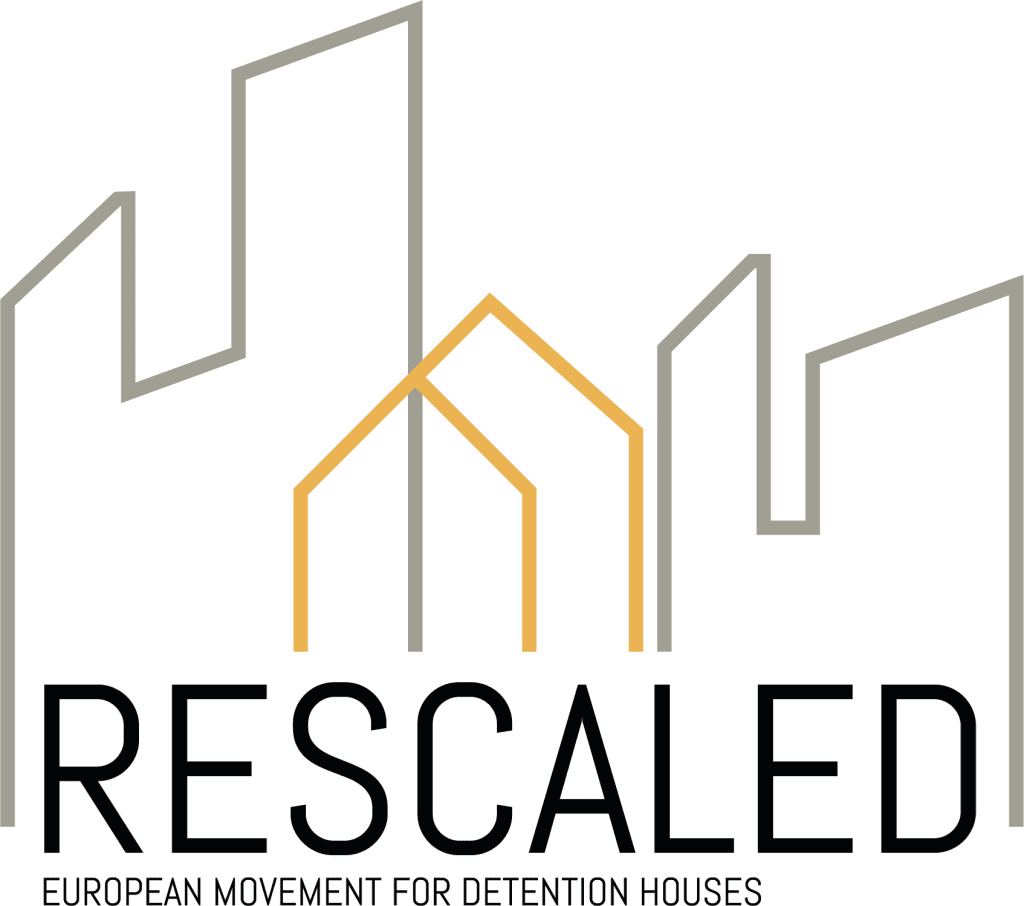The first Belgian transition house for prisoners has been officially inaugurated today by Deputy Prime Minister and Minister of Justice Koen Geens: “It is important to give a detainee the opportunity to prepare for reintegration in society. I am pleased to be able to open the first transition house in Belgium today. The prisoner serving the last part of his prison sentence will be given the opportunity to work intensively on his return to society. Mechelen is doing its part in creating a safer society.” – On 14 January 2020 a second transition house will be set up in the Walloon municipality of Enghien/Edingen.
Belgium makes a first step towards small scale detention houses. A very special moment to celebrate! But first let’s take a look back at this interesting story and where it all began.
WHAT HAPPENED SO FAR
The major issues facing prisons today are broadly known. They can no longer be denied. Not a day goes by without someone criticising our prison system. Drug use, suicide, violence, staffing shortages, strikes, overcrowding, high degree of recidivism, unhygienic living conditions, condemnations by the European Committee for the Prevention of Torture, and so on. The large prisons of a bygone era clearly show up negatively. The fact that their problems cause constant commotion in society indicates a great dissatisfaction with the system. These problems are not new, but society expects more from the prison system than before, and rightly so.
Hans Claus, Prison Governor in Oudenaarde and founder of VZW De Huizen, challenged the system: “Don’t be afraid to think outside the box!” If we are to solve the current problems effectively, we must resolutely opt for a new penitentiary paradigm, namely small-scale detention houses.
Don’t be afraid to think outside the box!”
From the beginning it was the intention to really change things. “It is not the intention to just think about the prison system, we actually want to change the system also”. The development of a coherent concept was an important first step, but it was certainly not the ultimate goal. VZW De Huizen has always focused on getting into contact with politicians, after all, they decide whether the concept is translated into reality. In addition, the members of VZW De Huizen try to reach the wider public each in his/her own way by organising lectures, workshops and musical evenings. VZW De Huizen is expanding its network by contacting schools, universities, cultural centres and attending major events.
THE JUSTICE SYSTEM IN TRANSITION
In July 2018 the government issued a call for applications. Organisations got the opportunity to submit a file with the Federal Justice Service that should present a clear vision on how to run a transition house and contain a proposal regarding internal rules, as well as a plan that clearly describes how the project can be implemented in the neighbourhood. Thirteen organisations submitted a file. For Wallonia eight candidates were selected, in Flanders seven candidates successfully passed the selection procedure. Some of them put forward their candidacy for both Flanders and Wallonia.
After completing the procedure G4S was selected to open two transition houses, one in Mechelen and another one in Enghien/Edingen a few months later. Of course, questions can be asked about this choice. Is it morally acceptable to entrust detention of fellow citizens to a for-profit company? Even if it does not actually make a profit? Should we cross this line? Don’t we all know that commercialization of prisons has often had deplorable results?
THE TRANSITION HOUSE IN FLANDERS
We, along with some members of VZW De Huizen, got the opportunity to visit the transition house in Mechelen. It is nice to see how a concept that we have been thinking about for so many years has finally been translated into something tangible in practice. The first small-scale detention house is no longer a dream and is now part of the existing penal system.
The transition house in Mechelen, where 15 inmates are preparing for life after prison, is located in the city centre. The prisoners who are staying in the house are still ‘detained’. They are not yet released on parole and are not allowed to freely walk in and out the house. These prisoners, who sometimes have been in prison for a long time, need ‘transition’. In a transition house the focus is on the future, not on the past. This is called a strength-based approach. During his stay every prisoner is supported by a strength coach to prepare themselves for adjusting to life after prison. The key components of the reintegration plan are: housing, work, establishing relationships and the need for fulfilment. The aim is that prisoners should be self-reliant in an increasingly complex society.
Life in a transition house is normalised and life coaches assist in ensuring the smooth running of the day-to-day. Each prisoner has to do his own laundry and is responsible for preparing his own meals. They all have a room offering complete privacy, but everyday tasks take place in common areas. The prisoners’ sense of community is stimulated in this way and they also learn to assume responsibility.
THE TRANSITION HOUSE IN WALLONIA

We are already looking forward to the progress of these two wonderful projects.
FIRST EXPERIENCES AND FUTURE PLANS
In February 2020 we heard a positive story of a prisoner who is no longer in the transition house of Mechelen and who is currently under electronic monitoring. He talked about his experiences in an interview he gave to a newspaper. He said that the prison made him brain dead. The transition house opened up new possibilities.
You get the opportunity to take your life into your own hands again and participate fully in society.”
Master plan III provides for transition houses with a total of 100 places. At this moment there is a one-year pilot project providing places for 30 prisoners in the transition houses in Mechelen and in Enghien/Edingen. After a positive evaluation, the number of places will be extended to 100 throughout Belgium.
VZW De Huizen takes pride in the fact that policymakers finally support our concept. These two wonderful projects are the result of it. But it certainly does not stop here. We continue to advocate a completely new penitentiary paradigm. We hope there will be more transition houses but we are also focusing on detention houses for young adults and prisoners serving a short sentence. In this way we want to get each target group out of the prison system and provide accommodation in small-scale detention houses. We hope that our country will focus completely on a detention policy with detention houses, to put an end to the outdated prison system that has a mainly negative effect on prisoners.
The transition houses in Belgium are a good start but they are only a first step in the right direction.







